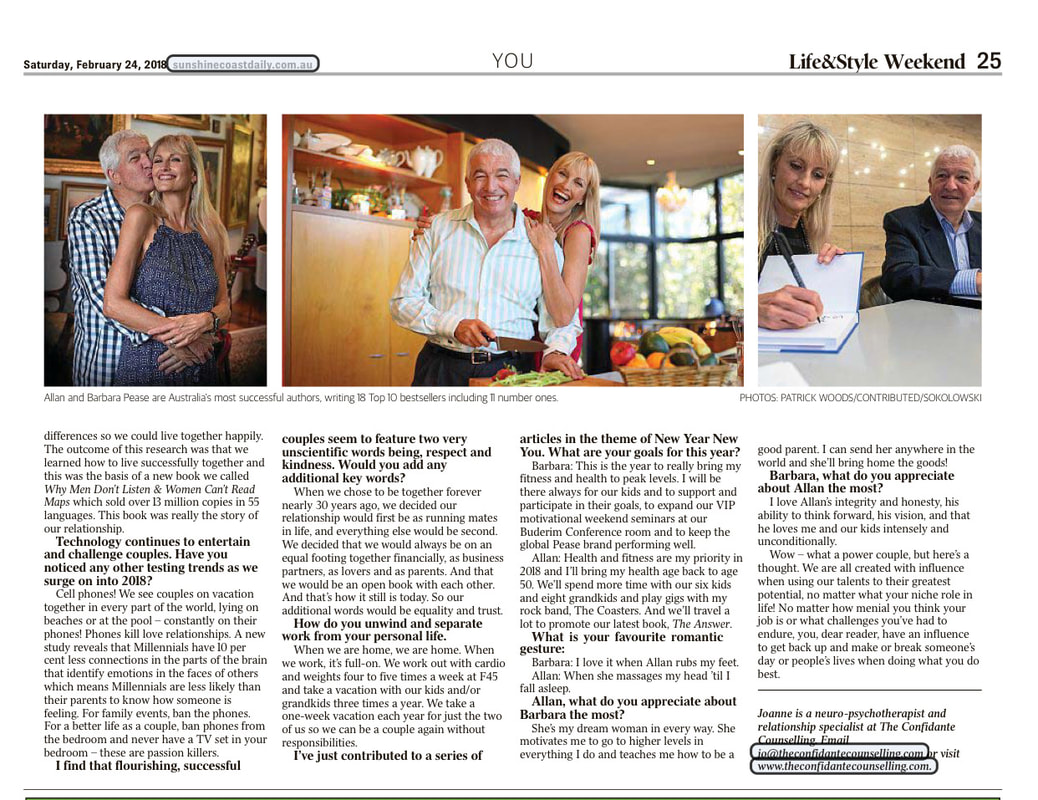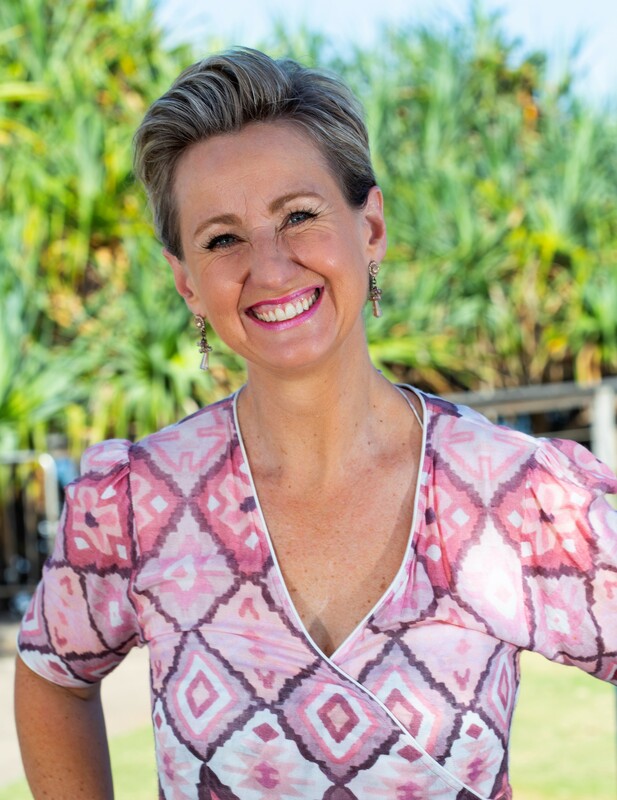
Physical intimacy in marriage - the source of so much joy and frustration for so many couples. It's easy to feel alone and rejected when your partner doesn't seem interested in physical intimacy. It can also leave you lugging around a guilt suitcase when the demands of your day don’t travel in the same direction as your partner’s Libido Love Land.
Let's start with the frequent experiences of loneliness, frustration, and rejection. It's interesting how some chaps often eventually throw in the towel, steering clear of the rejection whirlpool to dodge the 'no' torpedo. On the flip side, ladies grapple with the whole 'not fitting the 'ideal' mould' conundrum, jousting with rejection on the battlefield of looks.
Contributing factors can include:
- Body image struggles that tend to affect more women than men when dimming the lights becomes a prerequisite for any romantic encounter. - Exhaustion is another pesky problem that can affect physical intimacy, as is the topic of boredom with the same sex routine. - Work commitments where long hours or shiftwork can turn couples into “passing ships in the night”. - Children. They're wonderful little bundles of joy, but let's face it, they can also be energy zappers. Between the constant demands for attention, the never-ending messes or a taxi service, it's no wonder physical intimacy falls from the priority list. - A poor approach to conflict can seriously impact physical intimacy. After all, it's hard to feel close to someone when you're constantly arguing or unable to resolve your differences and reconnect in a timely manner. - Injuries or sickness: if intimacy hurts or you’re incapacitated, it’s a sure-fire way to extinguish the passion party. How can this important issue for many couples be resolved? Instead of getting mad and sad, why not try talking about it? Sure, discussing intimacy and sex can be tricky, but it's important to communicate your feelings and desires with your partner who may even feel the same. You could also play with some euphemisms. For example, instead of saying, "I want to have sex," you could say, "I'd like to engage in some horizontal hustle”. What about “the mattress mambo"? Your challenge today is to improve on my substandard suggestions here. It is a wonderful gift to contribute the best version of yourself, committing to health and wellness for life, however usually unrealistic to be the unwrinkled, trim, and svelte shape you may have flaunted many years ago. Your partner loves you for the whole package, not for what you look like. Embrace your flaws and imperfections, and don't be afraid to be vulnerable. You could try getting more sleep, taking a nap during the day or evaluating your respective roles and responsibilities. If all else fails, reach for some coffee beans perfectly positioned next to your bedside table? I can’t guarantee you’ll sleep peacefully afterward though. Why not experiment with new positions or introducing sex toys into the mix. It’s usually against the law to get adventurous in public places however the joy of sex is something that should involve feeling comfortable to try new things. Busy couples often collaborate in the counselling room on scheduling sex like you would any other appointment. Or, if you're feeling particularly risqué, you could try having sex at work (with your partner). Just be sure to lock the door and… that idea did not come from me. There are ways to handle conflict in a healthy way. You could try practicing active listening or taking a break when things get heated. Or, if all else fails, seek out a marriage expert (aka people like me!) to learn a healthy new approach to ensure your differences launch you toward deeper intimacy. After all, there's nothing like makeup sex to bring a couple closer together. Finally, speaking of professional help, cross off a visit to your GP or intimacy expert to explore ways to overcome erectile dysfunction or ladies' intricate equipment matters and the like. In conclusion, physical intimacy in marriage may not always be a priority, but it is worth constantly working towards it. With a little bit of humour, communication, and creativity, you can overcome any obstacle that comes your way. So, embrace the ups and downs of marriage, and remember to always keep the spark alive. Joanne Wilson is the Relationship Rejuvenator and author of Renovate Your Relationship – All The DIY Tools For Your Most Important Project ($29.99). She is a neuropsychotherapist inspiring the community for thriving and dynamic relationships that impact generations for mental well-being. Find out more about her online courses at www.relationshiprejuvenator.com Stuck for ideas? Purchase Jo's Intimacy Inspirations Card Deck on sale for Spring. Help me decode the mystery of your inner desires andtake my survey for free. Photo by Anne Nygård on Unsplash Welcome to the “Top 10 Worst Relationship Mistakes” series as noticed in the counselling room. You are welcome to enjoy this also from personal experience as a married relationship therapist who is living and breathing the wondrous relationship reality! Not only have I made many of these mistakes myself, but it is helpful to be reminded that we have our “best attempts to cope” with relationship situations, and I believe we are not inherently mean! This series does not include malicious behaviours such as narcissism or those that result in abuse from being under the influence of alcohol and drugs. Whilst these are massive mistakes, this series reflects those common errors that undermine great relationship dynamics. To kick off this series, let’s go with a so very important topic: Leaving it to one person to initiate Intimacy. The focus here is not just sex, but touch of any form such as cuddles, rubs, cute little slaps, tickles – any form of physical connection! Stereotypes would assume that blokes will always be the one to initiate sex, however this truly isn’t the case. There are thousands of libidinous females out there who long for the touch of their partner and for all sorts of reasons aren’t able to enjoy this. For either sex, when it is always left to them to physically reach out for love, it eventually results in rejection, then even symptoms of grief. The beautiful dialogues that I have the privilege of hearing in the counselling room, include the sense of vulnerability, fulfillment, heightened sense of masculinity or femininity that results when there is mutual and consensual enjoyment through intimacy. Unless it is otherwise arranged, why not check in with your partner on their level of fulfillment on who is kicking things off in the bedroom, the kitchen or wherever is a good place for you to enjoy contact? Take this chance to enjoy a healthy conversation on: - What does sexual fulfillment mean? - In their opinion, who usually initiates intimacy? - What flirtatious activities do you appreciate outside the bedroom? - What's on your Intimacy Wish List? Check out this series on my Instagram TV channel and the Podcast! Joanne Wilson is the Relationship Rejuvenator and author of Renovate Your Relationship – All The DIY Tools For Your Most Important Project ($29.99). She is a neuropsychotherapist inspiring the community for thriving and dynamic relationships that impact generations for mental well-being. Find out more at www.relationshiprejuvenator.com Photo by Yuris Alhumaydy on Unsplash
My partner won’t cuddle me, my husband won’t pick up his clothes off the floor, my wife won’t…. I sure don’t have a shortage of content on my counselling client’s spousal shortfalls.
Freida would arrive each fortnight for her relationship counselling session with her husband, Fred. She would relentlessly complain how much she longed for him to welcome her home with a warm embrace. Freida would appreciate ANY gentle caress; her hair, the brush of her arm, a quick squeeze and especially cosy snuggles on the couch after dinner in the evening.
Whilst Fred heard, he seemed to fall short of following through with these requests.
Eventually, Freida gave up on seeking affection in the way she truly longed for it. As it turns out, Fred was super uncomfortable with public displays of affection or any of that style of closeness. He never experienced this at home as a child. Nonetheless, his family were loving and supportive. His Dad attended all his sporting events, enthusiastically yelling tips from the sidelines, encourage and applaud his academic achievements and drive all over the state for his competitions. Fred’s Mum would cook up a storm for all his mates, be a kind listening ear etc. but, they were not the touchy-feely type of folk. Understandably, the whole caressing, hugs and holding hands thing outside the bedroom was a foreign and weird concept for Fred – he just didn’t get the importance. Fred would rather get busy supporting Freida with running errands, around the yard and helping with their children’s gymnastics and soccer games. As you do when you’re repeatedly not getting what you want, Freida gave up asking! Freida and Fred continued to coast along however became despondent. They arrived in my counselling room hoping to avoid spiralling into deeper despair, disconnection and resentment. Throughout our time together, Fred dared to reveal he missed Freida telling him what a great Dad he is. He used to love her sweet messages left on the kitchen bench encouraging him for his next presentation at work. It was obvious they were attempting to show love in all the wrong ways – their own way. Not each other’s! Furthermore, throughout their fifteen year marriage, they had diverted to an imbalanced focus on work, the children and their individual pursuits - their intimate relationship was the last priority left to run itself. Three common things were undoing Freida and Fred:
In time, they achieved a fantastic and intimate connection for them resulting in: - understanding how important it was for Freida to enjoy regular cuddles - Fred being courageous to outline exactly what words of encouragement he appreciated and how - weekly "Alignment" catch-ups on their deck over a cuppa where they highlighted what was going well in their relationship, areas of concern and discuss plans for the coming weeks' Do you need to: - ask for what you need that makes you feel truly loved? - consider if you are giving what your spouse needs and not just what you think they like? - check in your levels of familiarity that breeds apathy in meeting each other's needs? Love is… when your spouse selflessly expresses affection how you long for it and not what they want. Don’t forget to diarise my Facebook Lives each Therapeutic Thursday morning for Thriving Relationships to inject some relational inspirations into your weekend! Joanne Wilson is the Relationship Rejuvenator and author of Renovate Your Relationship – All The DIY Tools For Your Most Important Project ($29.99). She is a neuropsychotherapist inspiring the community for thriving and dynamic relationships that impact generations for mental well-being. Find out more at www.relationshiprejuvenator.com CategoriesAll 
It saddens me every time when uniquely fabulous individuals arrive in the counselling room with their partner, describing their pain, isolation and loneliness as a result of being ill-equipped to approach their differences in a respectful, kind and healthy manner. They present zapped of energy, depressed, anxious, even traumatized. After years of this as their “norm”, they arrive at the end of their tether.
In the last decade, I’m fairly sure I’ve seen every type of conflict dance on the circuit. From where I sit, I recognise kind-hearted, gifted and beautiful people using their very best attempts to cope with differences with their partner. They try all different manoeuvres to make it better and feel safe again but they fall flat. If you’re finding yourself in a similar situation, here’s what you need to know: Conflict is normal. You haven’t partnered with your clone so you’re allowed to have varied preferences! It is concerning when couples don’t ever disagree as they are possibly “glossing over” the important issues. Even worse, “shoving them under the carpet” results in a very large mound that will result in a catastrophic trip down the track. When you live with someone, you’ll usually need to provide each other feedback about the dishcloth, shower screen or lawns at some time. You will be unintentionally hurt by your spouse and need to let them know.
With this in mind, when a high conflict couple like Sam* and Max* arrived at my Counselling room, I discussed their family history and who taught them how to do conflict? We noted that Sam* was repeating the legacy of her past in drinking too heavily to cope with stress at work, resulting in a quick temper and aggression when conflict arose. Max* would immediately shut down and avoid Sam* making her even madder. Max* became fearful, had trouble putting his thoughts into words and *Sam relentlessly tried to get her point across in all the wrong ways. The cycle continued from there. My role is to make it extremely obvious what “conflict dance” the couple is using so they can step out of it into a new style with time, persistence and coaching! Amongst many things, Sam* and Max* were required to:
We discussed hurts from the past including before their relationship and afterwards. Together they journeyed toward a respectful and kind approach to conflict with confidence! You can too! Join me in my next 7-day Challenge to commence re-engineering your approach to communication and conflict. It doesn’t require two people - so watch this space! In the meantime, you can jump onto my “Communicate For Love” mini-course NOW that teaches this process indepth from the comfort of your own home. No trips to the Counselling room, no parking – just you at your own pace, navigating a new healthy approach to conflict! Don’t forget to diarise my Facebook Lives each Therapeutic Thursday morning for Thriving Relationships to inject some relational inspirations into your weekend! Joanne Wilson is the Relationship Rejuvenator and author of Renovate Your Relationship – All The DIY Tools For Your Most Important Project ($29.99). She is a neuropsychotherapist inspiring the community for thriving and dynamic relationships that impact generations for mental well-being. Find out more at www.relationshiprejuvenator.com
When Jan* and Phil* arrived into my counselling room presenting an incredibly sad, lonely and disconnected relationship, they outlined how they had not spoken about anything indepth for years.
Regrettably, their dialogue was purely perfunctory including where the children needed to be at what time and what was for dinner. They had lost the ability to communicate – it was woeful. Their relationship featured built-up resentment over the years from unresolved issues from an unhelpful approach to conflict. One of the main challenges I noticed that fuelled this disastrous state of their marriage was they never discussed united goals or dreams at the state of their relationship. They coasted along and never really aligned themselves. There is no emotional safety when you do not have united goals or dreams. Two major elements of alignment is: 1. Attentive listening in conversations where you can enjoy a safe space to share what you long for, your desires, concerns and fears. You want to avoid “flying blind” instead of copping the unexpected “angry birds” as they whack you in the face out of nowhere! 2. Consider your expectations for this week or next month? What specific challenges are you facing? What are you looking forward to? Is it extended family commitments, a noisy neighbour or a child being bullied at school? You might just be feeling emotional and don’t know why? Your partner is the first person you should talk to about all this! It is super exciting when you can become that united force to overcome and achieve more than you ever have than if you were alone. This was my goal for Jan and Phil! Once we had “how to align on a regular basis” covered, we discussed the greater goal timeframes for the coming year and what they wanted their relationship to look like? They wanted to be that united and connected couple that others admired. Excellent start! We broke it up into specific timeframes of one, two, five years and ten years:
Jan sought more for bushwalking alone to gain meditative peaceful time away from the hustle and bustle! Phil wanted the freedom to catch up with mates for a drink even now and then! They integrated new couple goals that included new financial budgets and holiday destinations! Their family goals involved more bike rides together and less events with extended family who were taking up too much of their precious couple time. We covered their aspirations for funds to open their own business in five years that would support private schooling fees and a house extension. Even I got excited for them. They had a plan from which we could envision from which we could focus on how they respectfully dealt with conflict. Here are some helpful hints for couple goal setting: Be respectful and open in your discussions with each other. There’s no point in tip-toeing around topics when you’re discussing your hopes, dreams, and aspirations.
Avoid getting stuck in the discomfort of your old substandard disconnection that has you co-existing as flatmates. You are designed to enjoy thriving in dynamic relationships achieving more than you would alone. Enjoy your goal setting conversation this weekend that propels you to success for the remainder of the year! Don’t forget to diarise my Facebook Lives each Therapeutic Thursday morning for Thriving Relationships to inject some relational inspirations into your weekend! Joanne Wilson is the Relationship Rejuvenator and author of Renovate Your Relationship – All The DIY Tools For Your Most Important Project ($29.99). She is a neuropsychotherapist inspiring the community for thriving and dynamic relationships that impact generations for mental well-being. Find out more at www.relationshiprejuvenator.com  We’ve been getting down and “naked to the soul” throughout the recent month. I’m unveiling all those major inhibitors to intimacy in this series and today is a wrap up of what has inspired incredible interest from the community. It is an honour to share insight from the counselling room on common snags to the secure connection and love we deserve in order to spread the love for everyone! Last month I recognised four main categories:
Today I present the overarching theme of being “naked to the soul”. It would be safe to stay that our human nature default status is a lack of appreciation for ourselves. Even worse, self-deprecation and toxic self-loathing. It takes effort to keep abreast of the spiralling anxious thoughts that feed this. In society, talk yourself up or display too much self-promotion – you’re arrogant, conceited and “full of yourself”. In reality, we thrive on encouragement, positive reinforcement and the connectedness from others to “have our back”, particularly when life gets challenging. If I were to blatantly stereotype, many men will derive status from their achievements along with power from sex. A lot of women feel validated for their appearance and sense of belonging and acceptance when in a relationship. I note we do have unique “mosaic” brains so everyone features their own blend of longings. When we “strip back” our work, our interests, our looks and who we are with, it’s worth reflecting on exactly, Who am I without my money, job, my partner or other avenues I rely on for validation?” “Who do I represent?“ “What do I stand for?” and “What do I long for?”. Do we miss out on complementing each other in healthy partnerships because we overlook what’s really inhibiting intimacy? The recognition of our design for love, acceptance and belonging for being ourselves with all our flaws and raw spots? Are we scared of what will see in ourselves when not covered by our “things”. You deserve to ask (in the appropriate way) for your desires, recognising you’re an amazing work in progress and be accepted for your short-comings. Have the courage to turn up bare in your relationship, naked to the soul. Joanne Wilson is a neuropsychotherapist, relationship specialist, workshop facilitator and guest speaker. Tune into radio Salt106.5 each Friday morning for her co-host of the Morning Wakeup. Don’t miss more on these articles in her “Is This Love” Podcast and download your FREE relationship resources at www.relationshiprejuvenator.com  I love the meaning of a leap year day on the weekend which perfectly blends with my current relationship series, “Intimacy Inhibitors”. Head to my blog for this series where so far I’ve covered:
A Leap Year Day, gives the earth additional time to complete the full circle around the sun. If we didn’t add leap days, each calendar year would be increasingly out of alignment and begin about six hours before the earth does its entire journey. Our time would slowly drift apart from the tropical year and we would get out of sync with the seasons. Americans would be eating Thanksgiving turkey in summer! What does that have to do with intimacy? Alignment. When we’re not regularly checking in with our partner, aligning with your each other’s needs, challenges, hectic schedules, children’s discipline and forward planning – we’re increasingly out of sync. Examples of when this intimacy inhibitor features in my counselling room is when:
I realise you can’t anticipate every step of life together, however it is worth having a decent crack to avoid constantly falling into the potholes of misalignment. Why does your mechanic check the wheel alignment? It avoids unnecessary wear on your tyres, steering, suspension and brakes. The key word here is “unnecessary” - why would we drift apart unnecessarily without harmonizing each other’s sexual flavours, spirituality, personal development, goals and dreams? A great reminder today is to leap on in and arrange that alignment catch-up with your partner for a forecast of sunny days ahead! Joanne Wilson is a neuropsychotherapist, relationship specialist, workshop facilitator and guest speaker. Tune into radio Salt106.5 each Friday morning for her co-host of the Morning Wakeup. Don’t miss more on these articles in her “Is This Love” Podcast and download your FREE relationship resources at www.relationshiprejuvenator.com What are you scared of? Spiders, snakes, dogs, heights, flying, enclosed spaces, needles, storms? The list is endless of what frightens the heck out of us. What about the one we can’t physically see that’s on top of the list of what petrifies humans (according to me)? What is this invisible phobia that causes us to recoil in horror, shock and sadness that can disable us for months, if not years at a time? Rejection. And what does rejection cause? Fear. I’m spearheading through my first series for your 2020 – “Intimacy Inhibitors”. It’s designed to stop you in your tracks to ensure you’re not sabotaging your relationships with unnecessary road-blocks to your intimate relationship. These inhibitors are evident in my counselling room over and over again so why not cut your mistakes short and enjoy insight from the progress achieved from countless courageous clients over the years? I’m longing for you to be “naked to the soul” in realising your true design to enjoy being with another special person and all the vulnerability that goes with it. I acknowledge the importance of feeling safe and secure when we can count on turning to our loved ones for support, love and connection. This doesn’t necessarily apply to just intimate partners but allowing our friends and family in. You flourish when you allow people into your inner world. Why would you do this? Because you fair much better when you share the load. Your brain lights up when you compassionately support someone else. You navigate the world knowing someone has got your back despite your flaws, failings and mistakes. Why don’t we do this?
Fear and rejection. I can guarantee everyone on this planet has suffered rejection and all the devastating effects of being alienated, disappointed and lonely. This is particularly long-lasting when repeatedly experienced as a child when a decision is made to avoid relying on others at all costs. Translate this behaviour to an adult intimate relationship and it’s challenging to reach out and enjoy closeness. What do you do about it? Realise your default personal news reel. After over a decade of counselling I’ve come to realise, no matter your charmed or compromised background, human nature sadly and too easily defaults to worthless self-talk. If we allow life’s whacks, clobbers and thrashings to permanently wire us to avoidance, we are trapped in pain and isolation. We’re more likely to judge and criticise others to deflect the perceived short-comings from within - all rooted in fear. I look forward to stepping you through some steps to overcoming fear - this massive inhibitor to intimacy next week. Joanne Wilson is a neuropsychotherapist, relationship specialist, workshop facilitator and guest speaker. Tune into radio Salt106.5 each Friday morning for her co-host of the Morning Wakeup. Don’t miss more on these articles in her “Is This Love” Podcast and download your FREE relationship resources at www.relationshiprejuvenator.com  School is back in, Aussie trade in full swing, Valentine’s Day florists soon go “ka-ching”, ... and for me – great timing! Yes, it’s a fabulous time of year for my latest and greatest momentous topic of utmost importance for your 2020, drum roll… “Intimacy Inhibitors”. Turn the pages to this section of this magazine in recent years and you’ll be well familiar with my frequently used term, “we are designed relationally”. That is, we feel safe and secure when we can count on turning to our loved ones for support, love and connection. Turn the pages of your life, and you’ll recall your highlight reel features sharing great moments with others, feeling loved, valued or appreciated. There are so many themes around this topic in the counselling room. I can’t wait to share with you some wonderful insights to giving and receiving the love you deserve. Where do we start? We get “naked to the soul”. Sounds a bit rude, however this is more about getting authentic with your own needs and turning on your “attachment antennae” to a healthy frequency. This wonderful analogy was gifted by authors and practitioners, Kallos-Lilly and Fitzgerald in their contribution to Emotionally Focussed Therapy. They explain those who’ve enjoyed positive childhood experiences of connecting with their parents of caregivers naturally tend to extend this to their romantic relationships. Those who’ve experienced a less than ideal childhood can feel a sense of loss and emptiness for what was missed. As a result, our inherent need to survive and feel safe prompts some people to turn up their antennae or alert button to rejection from others. They can be hyper-sensitive to feelings of anxiousness when they sense others might let them down. They can be clingy and needy or try to control their partner to keep safe. Alternatively, those who keep their antennae turned down too low ensures they stay independent, avoid closeness and keep their distance. Both frequencies are their best attempts to cope to avoid the insecurity from a threatened bond with those closest and dear. Understanding the needs of such anxious or avoidant behaviours is a helpful head start to appreciate and respect their need for space or responsiveness. I look forward to revealing further aspects of being “naked to the soul” next week. Joanne Wilson is a neuropsychotherapist, relationship specialist, workshop facilitator and guest speaker. Don’t miss more on this in her “Is This Love” Podcast and download your FREE relationship resources at www.relationshiprejuvenator.com Death, taxes and the need to be loved are the sure things of life.
As Queensland prepares to recognise Mental Health week from 5 October, what a perfect time to recognise therapists all over the world impacting generations. I too, have the privilege of journeying with couples particularly with children supporting them rediscover how to effectively connect and mentor their young family with a beautiful, flourishing and cohesive connection, particularly with healthy conflict cycles. One great reminder I want to share is contemplating how we sought safety, learnt, felt and expressed love in the first place. We thrive on being loved, cared for and needed. A loss of connection in a relationship often feels like a near death experience for many. Have you ever taken time out to wonder: Who did you go to for comfort as a child and could you count on them? Were they available for you at critical times? Did these people ever betray you or let you down? What did you learn about connection /comfort from these people? Did you ever turn to alcohol, drugs, sex, material things for comfort? Have there been any particular traumatic incidences in your previous relationships? It makes complete sense that these experiences can shape our current relationships. They can subconsciously influence any insecurities, unrealistic expectations and explain why we find ourselves self-medicating with alcohol, drugs, sex or materialism or screen addiction. On the other hand, many people have been fortunate to enjoy a wonderful, loving and connected family of origin upon which to launch themselves to relationship success. If you’re in a relationship, I wonder if there have been times when you have been able to be vulnerable and find comfort with your partner? What a gift that is. It is an incredible honour when couples or individuals entrust me with their challenges, pain and dreams. Your emotional and physical well-being flourish when you enjoy dynamic, fun and connected relationships. It is never too late to begin being the best version of yourself in yours! In the theme of taking time to boost your mental wellbeing, check out the www.qldmentalhealthweek.org.au website for the Instagram Take Time challenge. They’re inviting people across Queensland to share what it looks or feels like when they ‘take time’ for the things that boost their mental wellbeing. Your post must be shared on Instagram using #QMHWTakeTime and can capture anything from a moment to an artwork. You might like to show how important it is to be active, keep learning, give, connect, enjoy the moment, or care for our planet. Just be creative, be yourself, and join the conversation. The challenge will run in the lead up to Queensland Mental Health Week until Thursday 3 October 2019. There will be six prize draws during this time with all entrants having the chance to win! Joanne Wilson is a neuropsychotherapist, relationship specialist, radio co-host, workshop facilitator, guest speaker and weekly columnist for the Sunshine Coast Daily. Contact Jo at www.theconfidantecounselling.com or via email. Listen in to her podcast discussing these articles and more, "Is This Love?" |
Joanne WilsonJoanne will be your Confidante, enabling you to speak freely in complete confidence and serenity. An integrated approach tailored to your specific needs will be utilised.
Categories
All
Archives
October 2023
|
Joanne will be your Confidante, enabling you to speak freely in complete confidence and serenity. An integrated approach tailored to your specific needs will be utilized. Approaches such as Psychobiological Approach to Couple's Therapy (PACT), Cognitive Behavioral Therapy, Solution Focused Therapy and Emotionally Focused Therapy may be incorporated.
Joanne WilsonRelationship Specialist for individuals and Couples online around the world and servicing areas for virtual sessions around Australia and servicing many clients in Queensland including Caloundra, Noosa, Noosaville, Buderim, Mountain Creek, Gympie.
|
Quick links |
|
Queensland - Australia
0409 909 933
www.relationshiprejuvenator.com
|
|
©
2017-2023 The Confidante Counselling . All Rights Reserved
Web Design by Debbie Navarro









 RSS Feed
RSS Feed









